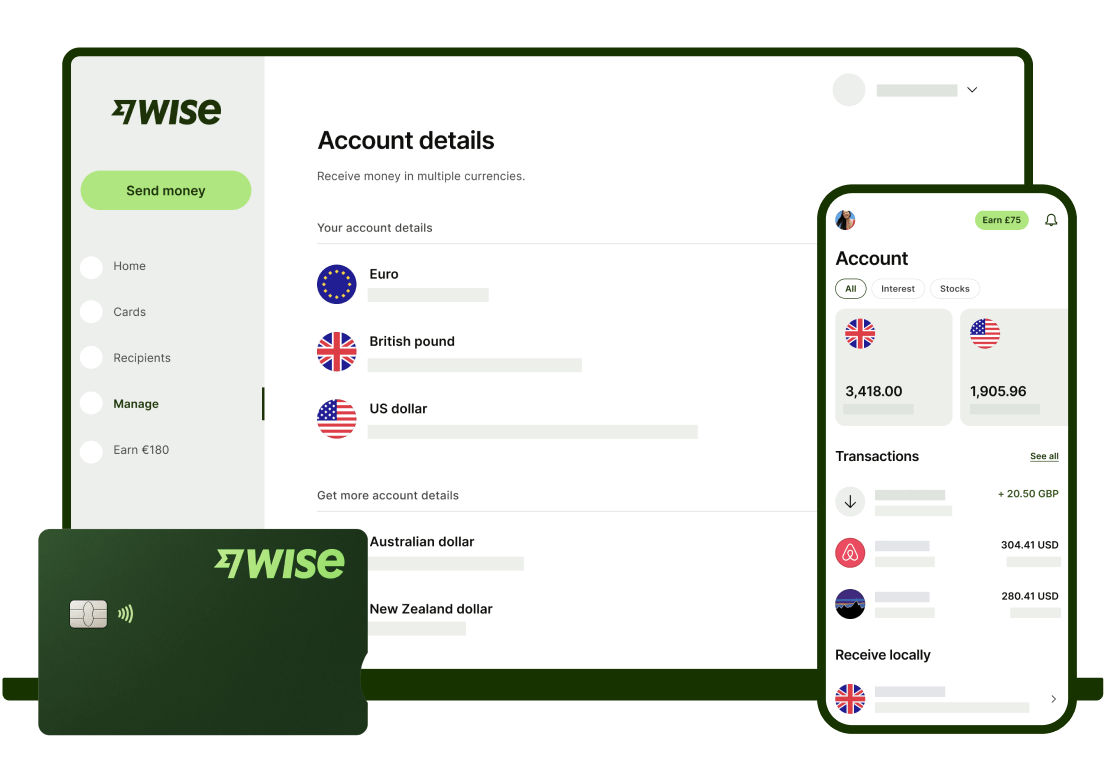How does PayPal Business Work? An Overview
Understand how Paypal Business works, a powerful tool for managing payments, invoicing, and financial transactions for your enterprise.

Ireland’s business-friendly environment, skilled workforce and strong global links make it a popular place to do business. Whether you’re a large multinational, or a sole trader just starting out, you’ll likely find that Ireland offers the infrastructure and support you need to flourish.
The optimistic trends for business don’t look to be slowing down. A recent survey shows that 85% of small businesses expect strong growth in the near future - making it a great place to get started with a company of your own.
If you’re setting up an enterprise in Ireland, you'll need a business bank account. Read this guide to see how to open one.
There are various different options when it comes to starting a business in Ireland. You may choose from the following:
There are variants on the types listed above, depending on how you want liability to be managed. The Irish Companies Registration Office provides a full list of the types of legal corporate identities you can select. The system is slightly complicated, but there are many agencies which will help you (for a fee) to set up a business in Ireland.
It might be possible to open a business bank account in Ireland for a foreign corporate entity. However, as the rules are complex and depend on the specifics of each case, you'll need to discuss it with your chosen bank first.
Exactly what documents you need to open a business bank account in Ireland will depend on the type of account you choose. If you're a partnership, you'll need to provide documents relating to all beneficial owners or those with a 25% share (or more). If you’re a limited company, you need a mandate form signed by all directors to confirm they agree to the opening of the account.
The documents you need to present are likely to include:
In some cases you'll need to bring original documents to the branch to open the account, in others, copies will be accepted.
Non-residents are entitled to open a bank account in Ireland. If you have a business which isn't registered in Ireland then you should contact your bank directly and ask if they can help you. Whether or not they'll allow you to open an account depends on where your business is registered, and the type of legal entity it's.
Most banks ask for you to visit the branch nearest you in person to present your documents. You might be able to visit a branch of the bank in your home country if you choose a global banking brand.
There are many agencies who will help you open a bank account for your company, but they’ll still require you to attend a bank in person.
Although you can start the process to register your bank account online, you usually need to go to a branch to show original documents before your account will be opened.
Under some circumstances, the Bank of Ireland can allow sole traders to open their account without visiting a branch.

Old-world bank accounts only work properly in one country. They hold money only in one currency. And it gets expensive when you try to use them across borders. Wise's new Borderless accounts solve all of this.
Now you can send, receive and organise your money internationally, without crazy fees or even-crazier exchange rates – just a small, fair charge when your money moves between currencies.
Ireland has a sophisticated banking system, so you'll have plenty of choice when it comes to business accounts. If you already bank with an international institution, then they might have a subsidiary in Ireland. This could make it easier to get started in the process of opening your account.
If not, then choose one of the larger, more established local banks such as these:
Bank of Ireland has several business banking options, including products aimed at businesses that are just starting out. If you’re a sole trader you may be able to apply online and complete the process over the phone. If you’re applying for an account for a partnership or limited company you'll need to visit a local branch.
Allied Irish Banks (AIB) split their business bank accounts by the age and size of your business (for example, whether you have an idea, a startup or an established company), and sector. This means that there's plenty of choice of business accounts. As one of the ‘Big Four’ in Ireland, you'll also find a good branch and ATM network at your disposal.
Business bank accounts at Ulster Bank are offered fee free for up to two years for new customers. Applying is simple, with an initial online application form followed by a meeting in branch to show your documents. The documents you need to gather are set out clearly online, depending on the type of company you run and account you want.
Permanent TSB offers business current accounts and other products such as loans and overdrafts. To open an account you'll need to call into your local branch, but the documents you need to gather are clearly laid out in this table. There are 92 branches to choose from, and you’re advised to set up your account in the one closest to you.
Before you open your business bank account in Ireland, it's important to read the terms and conditions carefully - especially the section on banking fees and charges. Don’t forget that the charging structure might be quite different to what you’re used to.
It’s common to find monthly account handling charges and fixed fees for banking transactions. In some cases, a certain number of transactions can be carried out for free every month, with fees applied after that. Even when these admin and transaction fees look small, they can build up over time.
Even new, and smaller businesses often need to make international money transfers - for example, to pay suppliers based overseas. This can be a costly exercise so it’s worth paying special attention to the fees applied by your bank when you move money or make direct payments between accounts using different currencies.
The listed fees might look quite low, but your bank will make their cut on the deal. Instead of a transparent, up-front fee, you might find that your bank’s profit is rolled into a poor exchange rate. If your bank applies an exchange rate which is worse than the real mid-market rate, then you lose out as the true cost of your transfer is higher than it needs to be.
Use an online currency converter to check the actual value of your money before you transfer internationally. If you do make a transfer, you might consider using an alternative service like Wise. Not only does Wise already offer the true exchange rate you can find on Google, but since your international transfer is made with two local transfers in each respective country, large SWIFT transfer fees are also cut out, leaving you with more money in the end.
*Please see terms of use and product availability for your region or visit Wise fees and pricing for the most up to date pricing and fee information.
This publication is provided for general information purposes and does not constitute legal, tax or other professional advice from Wise Payments Limited or its subsidiaries and its affiliates, and it is not intended as a substitute for obtaining advice from a financial advisor or any other professional.
We make no representations, warranties or guarantees, whether expressed or implied, that the content in the publication is accurate, complete or up to date.

Understand how Paypal Business works, a powerful tool for managing payments, invoicing, and financial transactions for your enterprise.

Looking for the best bank for self-employed individuals? Explore our top picks to find the ideal account with great features and low fees.

Discover the best business bank accounts for sole proprietors in 2025, comparing top banks to help you find the perfect fit for your needs.

Set up Venmo for your business in just a few steps. Our complete guide explains the process and benefits of accepting payments via Venmo.

Looking for the best European business bank accounts? Find the best banks and non-banks for your business, as well as their prices, fees, and requirements.

This First Citizens Business Bank review will cover all you need to decide if it's the best choice for your business!